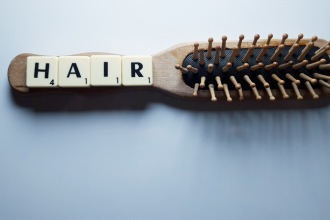Maintaining healthy hair is a lifelong endeavor that can change dramatically based on various factors. While many people often focus on what products they can use to improve their hair, the truth is that a multitude of elements influence hair health. From environmental aspects to personal habits and dietary choices, understanding these factors can help individuals take proactive steps to enhance the vitality of their hair. This article explores these critical influences on hair health and provides insights into how to cultivate and maintain vibrant locks as we age.
Genetic Influences on Hair Health
Genetics plays a vital role in determining the characteristics of your hair, including its texture, thickness, and growth patterns. Each person inherits a unique set of genes that can predispose them to certain hair conditions, such as alopecia or excessive shedding. Studies have shown that individuals with a family history of hair loss have a higher likelihood of experiencing the same issues. This genetic predisposition might lead to early thinning or balding, making it key for those who are aware of their family history to be proactive in hair care practices. Regular consultations with dermatologists who specialize in hair can help in identifying potential genetic predispositions and effective preventive measures, enabling better management of hair health.
Environmental Factors That Impact Hair
The environment around us plays a significant role in the health of our hair. Factors such as humidity, pollution, and exposure to ultraviolet (UV) rays can adversely affect hair fibers. High levels of humidity can lead to frizz and changes in hair texture, while pollution can cause buildup that leads to dandruff and hair weakening. Sun exposure can damage hair proteins, leading to dryness and brittleness. Adopting protective measures can significantly enhance the health of your hair. This may include wearing hats in the sun, using leave-in conditioners that provide UV protection, and regularly clarifying the hair to remove dirt and debris. Incorporating natural remedies or oils, such as Italian hair oil, into your regimen may help combat environmental damage, fostering a healthier appearance. By consistently shielding your hair from environmental stressors, you can maintain its strength, shine, and vitality in the long term.
The Role of Diet in Hair Health
A well-balanced diet plays an invaluable role in sustaining hair health. Hair follicles rely on nutrients such as proteins, vitamins, and minerals to produce robust strands. Deficiencies in key vitamins, particularly biotin, vitamin D, and iron, can lead to weakened hair and increased breakage. To promote solid hair growth, consider incorporating foods rich in these nutrients into your meals. Lean proteins from sources like chicken, fish, and legumes help build strong hair, while fruits and vegetables provide antioxidants that combat oxidative stress. Iron-rich foods such as spinach and lentils promote circulation to the scalp, encouraging healthy hair growth.
Personal Grooming Habits and Their Effects
Personal grooming practices can significantly influence hair health. Regular washing, conditioning, and styling are crucial components of hair care. The methods utilized can determine health. Over-washing can strip hair of natural oils, leading to dryness and irritation. On the other hand, inadequate washing can lead to a buildup and increased sebum production. It’s crucial to find a balance that suits your hair type and lifestyle. Using gentle, sulfate-free shampoos helps maintain the natural moisture while still providing a clean slate for styling.
Avoid excessive heat styling and harsh chemical treatments, as they can lead to long-term damage. By exploring and adopting gentler styling options, such as air drying or using heat protectants, individuals can preserve their hair’s natural integrity.
The Impact of Stress on Hair Health
Stress is another critical factor affecting hair health that often goes unnoticed. Under considerable stress, the body can enter a state known as telogen effluvium, where hair prematurely enters the shedding phase, resulting in noticeable hair loss. Chronic stress can exacerbate other hair conditions, such as dandruff and scalp irritation. Consequently, managing stress effectively is necessary for maintaining hair health. Techniques like regular physical activity, meditation, and engaging in hobbies can foster a healthier mindset and lower stress levels. Seeking professional help can provide coping strategies and support tailored to your situation. Prioritizing mental and emotional well-being can lead to healthier hair as well.

Hormonal Changes and Their Effects on Hair
Hormonal fluctuations, particularly in women, can significantly affect hair health. Events such as pregnancy, menopause, and hormonal imbalances can lead to considerable changes in hair growth patterns.
During pregnancy, increased hormone levels often result in thicker, fuller hair. Conversely, postpartum hormonal changes can trigger significant shedding. Menopause commonly introduces similar challenges, leading to thinning hair due to declining estrogen levels. Individuals experiencing these hormonal shifts should consult healthcare providers to explore treatments or lifestyle changes that may help mitigate these effects. Understanding one’s body and addressing hormonal changes proactively can significantly enhance hair vitality.
Importance of Regular Hair Maintenance
Regular maintenance is indispensable for preserving the health of your hair. Establishing a routine that includes trimming ends, treating dry or damaged areas, and protecting your hair from environmental stressors will go a long way in sustaining its vitality. Not all hair types are the same, so customizing your care routine according to your specific needs is crucial. Engaging with professional stylists who can recommend suitable products and techniques tailored for your hair type can lead to more informed decisions. Regular maintenance creates an opportunity to receive advice on the latest trends in hair care and styling, allowing you to make educated choices about your locks. By committing to a regular care regimen, you can combat the natural changes that occur and maintain healthy and vibrant hair for years to come. Taking the time to understand the many factors affecting hair health allows individuals to make educated decisions about their hair care routines. Whether it’s refining your diet, adjusting grooming habits, managing stress levels, or embracing new products, small changes can lead to significant improvements. By being proactive and proactive in hair care practices, individuals can foster stronger, healthier hair throughout their lives.














